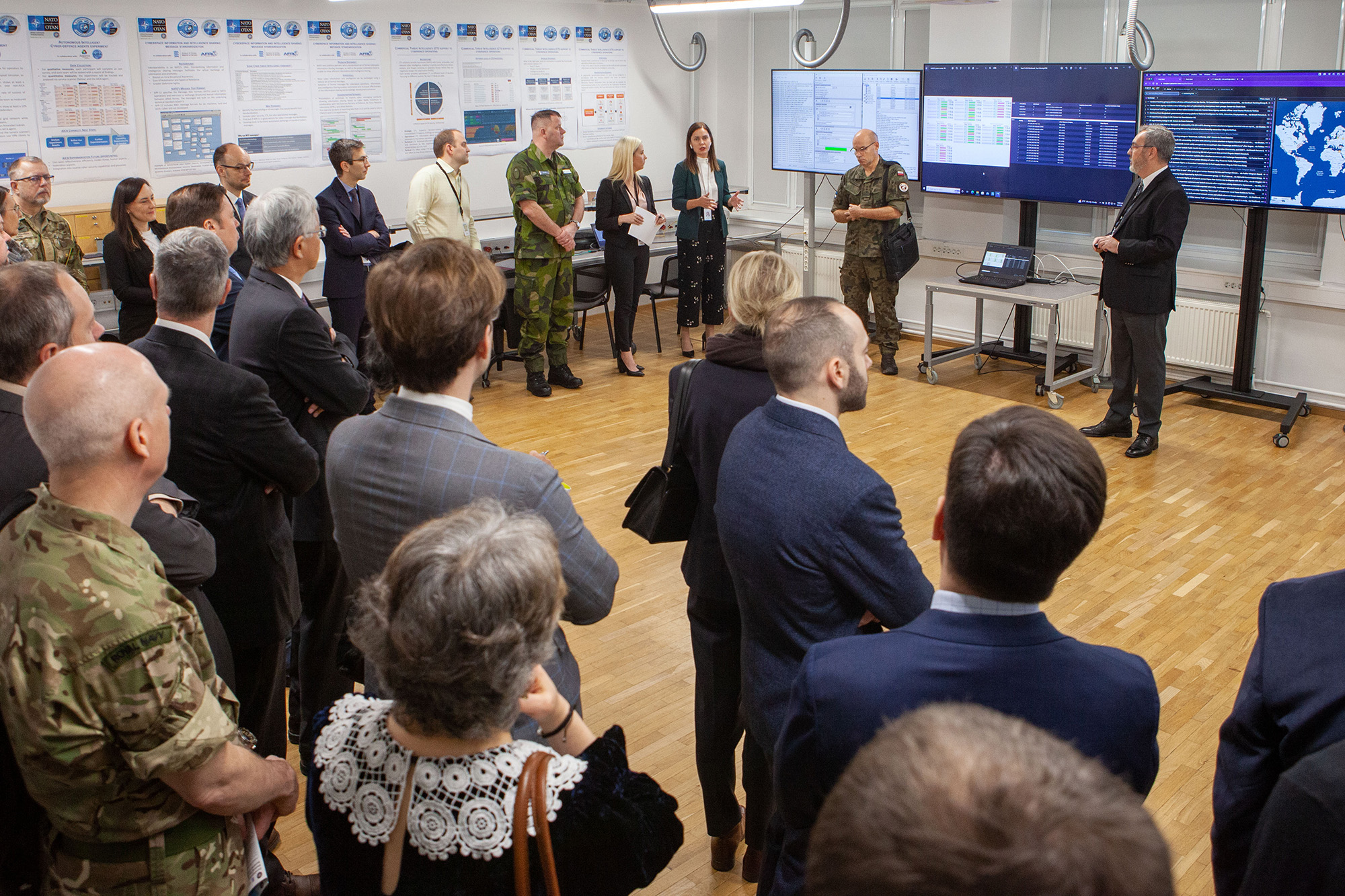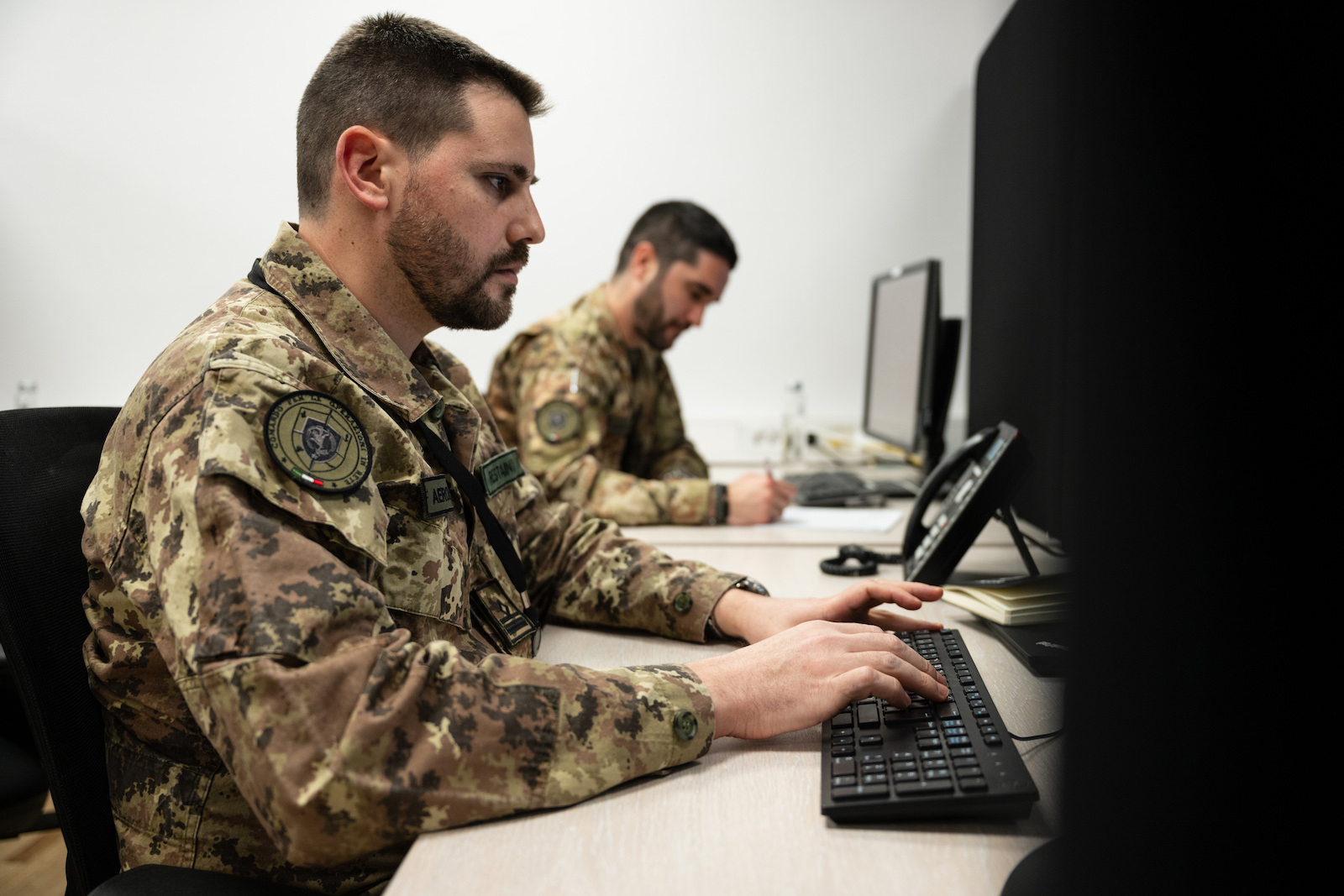LSU and NATO Team Up on Cyber Defense Training
June 18, 2024
NATO’s annual Cyber Coalition training exercise draws about 1,200 participants from the 32 member nations as well as allies and partners.
LSU cybersecurity researcher Elias Bou-Harb, associate professor of computer science with joint appointments in the LSU College of Engineering and the LSU Center for Computation & Technology, is working with NATO Allied Command Transformation to develop innovative training scenarios to help strengthen NATO cyber defense capabilities.

NATO Allied Command Transformation’s annual Cyber Coalition event ensures participating NATO members receive the most up-to-date and comprehensive training possible to deter and defend against cyber threats

Cyber experts in the Italian Air Force participated in last year’s Cyber Coalition, NATO’s premier annual cyber defense exercise, where coordination and collaboration between NATO members, allies and partners are rigorously tested.
Held annually in November and December, the NATO Allied Command Transformation Cyber Coalition exercise challenges civilian and military representatives from the 32 member nations to navigate several realistic cyber threat scenarios. Bou-Harb and his team of LSU students are now developing one of these scenarios. This fall, they will stage a hypothetical healthcare cyber assault in a NATO cyber range in Estonia to enhance collaboration and cyber preparedness across the NATO countries.

LSU cybersecurity researcher Elias Bou-Harb and his team are helping to shape the premier NATO cyber training exercise, Cyber Coalition. This year’s event, held in Estonia from November 30 to December 6, will include representatives from over 36 nations, including non-NATO countries, and approximately 1,200 participants.
“NATO’s strength lies in collective problem-solving,” Bou-Harb said. “Our scenario is crafted to promote cooperation, ensuring NATO can effectively respond to cyberattacks regardless of individual members’ expertise and resources.”
This year’s focus on the potential exploitation of medical devices to launch cyberattacks has broad implications for civilian life and military operations. Bou-Harb highlights the importance of healthcare infrastructure in maintaining the health and well-being of civilian populations and military personnel, noting that a cyberattack on these systems could have far-reaching consequences for patients, hospitals, emergency response capabilities and national security.
Medical devices, such as infusion pumps, ventilators and medical imaging systems, are increasingly network-connected and susceptible to cyber threats. Similarly, soldiers’ biometric sensors and GPS guidance systems could be targeted.
“Our partnership with Professor Bou-Harb and LSU has been instrumental in keeping the Cyber Coalition exercise at the forefront of cyber defense innovation,” said Ezio Cerrato, interim director for the 2024 NATO Allied Command Transformation Cyber Coalition exercise. “By integrating advanced academic research and insights into our training scenarios, we provide our teams with the most relevant and challenging environments to simulate real-world cyber threats. This partnership not only enhances the realism and effectiveness of our exercises but also exemplifies the crucial synergy between military and civilian expertise required to protect our cyberspace in an ever-evolving threat landscape.”


